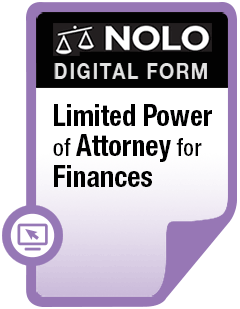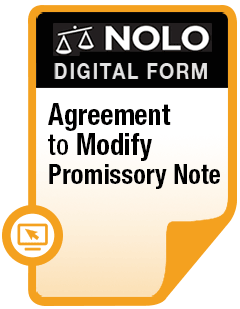Washington law protects consumers from telemarketers.
Washington's telemarketing laws under the state's Telephone Consumer Protection Act protect people from aggressive sales tactics and deceptive telemarketing practices by:
- restricting what telemarketers can and can't do in the state of Washington, and
- providing a way for consumers to avoid harassing sales calls and deal with telemarketers who violate the law.
If you get calls that violate Washington's telemarketing laws, you may file a lawsuit against the telemarketer.
- What Are Washington's Telemarketing Laws?
- Telemarketing Restrictions in Washington
- Who Does Washington's Telemarketing Law Apply To?
- Responsibilities of Sellers and Telemarketers Under Washington's Mini-TCPA Law
- How to Get On Washington's Do Not Call List
- Can Telemarketers Call After 8:00 p.m.?
- What to Do If a Telemarketer Violates the Law
- How Can You Add Yourself to the National Do Not Call List?
- Get More Information About Washington's Telemarketing Laws
- Talk to a Lawyer
What Are Washington's Telemarketing Laws?
Washington has joined other states, such as Florida and Oklahoma, in placing major restrictions on telephonic sales calls. Washington's telemarketing laws, which are similar to the federal Telephone Consumer Protection Act (TCPA), ban unfair and deceptive telemarketing tactics.
Telemarketing Restrictions in Washington
Under Washington's Telephone Consumer Protection Act, often called a "mini-TCPA law," telemarketers can't:
- continue talking for more than 10 seconds if you say you want to end the call, or
- contact you within one year if you say you don't want to be called again. (Wash. Rev. Code § 80.36.390 (2024).)
Who Does Washington's Telemarketing Law Apply To?
Washington's Telephone Consumer Protection Act governs the "unsolicited initiation of a telephone call by a commercial or nonprofit company or organization to a person for the purpose of encouraging the person to purchase property, goods, or services, wrongfully obtaining anything of value, or soliciting donations of money, property, goods, or services." (Wash. Rev. Code § 80.36.390 (2024).)
Because the law applies to unsolicited telephone solicitations, the following types of calls aren't affected:
- calls made in response to your request, including calls about an item the called party purchased within the last 12 months
- calls from a nonprofit to its list of active members
- calls made by a membership or labor organization to its own list of bona fide or active members of the organization
- calls about polling, opinions, and ideas, and
- business-to-business calls. (Wash. Rev. Code 80.36.390 (2024).)
The law defines "telephone call" as any communication made through a telephone that uses a live person, artificial voice, or recorded message. (Wash. Rev. Code 80.36.390 (2024).)
Responsibilities of Sellers and Telemarketers Under Washington's Mini-TCPA Law
Under this law, a person making a telephone solicitation must identify themself and the company or organization on whose behalf the solicitation is being made and the purpose of the call within the first 30 seconds of the call. (Wash. Rev. Code § 80.36.390 (2024).)
If the telephone solicitor is requesting a donation or money, the solicitor must ask whether you want to continue the call, end the call, or be removed from the solicitor's telephone list. (Wash. Rev. Code § 80.36.390 (2024).)
How to Get On Washington's Do Not Call List
If you say or indicate that you want to end the call at any time during the telephone call, the solicitor must stop the call within 10 seconds. (Wash. Rev. Code § 80.36.390 (2024).) And if, at any time during the telephone call, you say or indicate that you don't want to be called again or want to have your name, number, or other contact information removed from the call lists the solicitor uses, then the solicitor:
- can't call you for at least one year
- has to tell you that your information will be removed from their lists for at least one year
- can't sell or give your name and number to another company or organization, and
- must end the call within 10 seconds. (Wash. Rev. Code 80.36.390 (2024).)
Can Telemarketers Call After 8:00 p.m.?
Telemarketing curfews limit the times that telemarketers can call potential customers. Washington law sets a telemarketing curfew of 8:00 p.m. Specifically, telemarketers may not call you before 8:00 a.m. or after 8:00 p.m. at your local time. (Wash. Rev. Code § 80.36.390 (2024).)
What to Do If a Telemarketer Violates the Law
If a telemarketer has violated any of these requirements or restrictions, you can take one or more of the following actions.
File a Complaint With the Washington Attorney General's Office
To report a violation, you can file a complaint online or through the mail with the Washington State Office of the Attorney General. You can also call 800-551-4636 (Washington Only) or 206-464-6684.
The attorney general may bring actions to enforce compliance with Washington's telemarketing laws.
File a Lawsuit Against the Telemarketer
If a caller repeatedly violates the law, you can ask a court for an injunction or damages, or both. If you win, the court will award damages of at least $1,000 for each individual violation. You can also get reasonable attorneys' fees and the costs of the suit. (Wash. Rev. Code § 80.36.390 (2024).)
How Can You Add Yourself to the National Do Not Call List?
Do not call lists protect consumers from unwanted calls from telemarketers. The Federal Communications Commission and Federal Trade Commission maintain a national do not call list. The registry is nationwide and applies to all telemarketers, though certain organizations, such as nonprofit organizations, are exempt. You can add your number to this database by visiting the Federal Trade Commission website.
Washington's telemarketing law makes calling a telephone number registered on the federal do not call registry a violation of state law. (Wash. Rev. Code § 80.36.390 (2024).)
Get More Information About Washington's Telemarketing Laws
The state attorney general's office provides and maintains a website with information about the laws and regulations governing telephone solicitation, including the legal rights of those who receive telephone solicitations. It also provides information on how you may file a complaint for legal violations. (Wash. Rev. Code § 19.158.180 (2024).)
Talk to a Lawyer
If you want to learn more about your rights under Washington's telemarketing laws or file a suit against a telemarketer, consider talking to an attorney.
Talk to a Lawyer
Need a lawyer? Start here.
How it Works
- Briefly tell us about your case
- Provide your contact information
- Choose attorneys to contact you
- What Are Washington's Telemarketing Laws?
- Telemarketing Restrictions in Washington
- Who Does Washington’s Telemarketing Law Apply To?
- Responsibilities of Sellers and Telemarketers Under Washington's Mini-TCPA Law
- How to Get On Washington's Do Not Call List
- Can Telemarketers Call After 8:00 p.m.?
- What to Do If a Telemarketer Violates the Law
- How Can You Add Yourself to the National Do Not Call List?
- Get More Information About Washington's Telemarketing Laws
- Talk to a Lawyer
- Briefly tell us about your case
- Provide your contact information
- Choose attorneys to contact you



